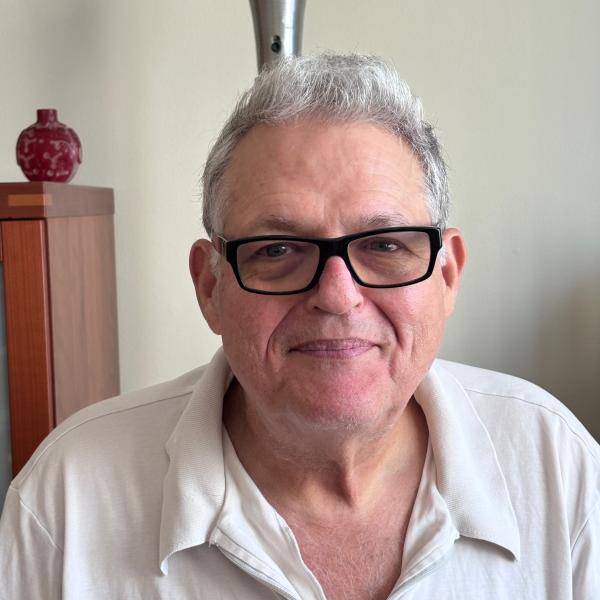Biography
In addition to being Visiting Professor of English at Chicago, Joshua Kates is Emeritus Professor of English, and former Affiliate Professor in Comparative Literature and in Germanic Studies, at Indiana University, Bloomington. Kates also previously taught at St. John’s College, Santa Fe, SUNY-Binghamton, University of California, Los Angeles, and Deep Springs College.
Kates’s first book, Essential History: The Development of Deconstruction (SPEP 2005), intervened in the so-called “Derrida/Husserl” debate. Kates argued that Derrida was a better reader of Husserl than most Husserlians recognized, but that it was also necessary to comprehend Husserl’s work on its own terms, and not just Derrida’s accounts of it, to come to grips with Derrida’s early thinking. Kates’s second book, Fielding Derrida: Philosophy, Literary Criticism, History, and the Work of Deconstruction (Fordham 2008) further contextualized Derrida’s work, placing it in conversation with controversies in literary studies, historiography, analytic philosophy, the history and philosophy of mathematics, and the treatment of modernity. Questions concerning the methodology of the humanities and literary studies already furnished the background for Kates’s interests, and his work repeatedly questioned historicist frameworks, such as the period, in favor of models offered by the notion of historicity. Along with further conceiving historicity’s operation, Kates subsequently came to reject all strong models of language in favor of discourse. This work came to fruition in Kates’s A New Philosophy of Discourse; Language Unbound (Bloomsbury 2020). A New Philosophy makes the case that texts do and say what they do only thanks to being related to worlded subject matters and actual readers and authors, while being subtended by one-time historicities—a template drawing on the work of the early Heidegger and Donald Davidson. Last year, Kates edited and contributed to a special issue of the journal nonsite where these questions were addressed in the context of a discussion of Derrida’s “Signature Event Context.” Kates’s other recent efforts focus on a possible counterconcept to discourse: the symbol’s functioning in information theory and our burgeoning computational environment. (Some older pieces by Kates may be found at his Academia.edu page, linked to here: https://indiana.academia.edu/JoshuaKates
Kates’s teaching, like his writing, has been wide-ranging. He has taught nearly the entirety of the curriculum, including the history of math and science, at St. John’s College, while also there drawing on his advanced studies in classical Greek. At other institutions, Kates has offered courses on Shakespeare’s early and late plays, on film, on phenomenology, on Heideggerean and Gadamerean hermeneutics, and, most recently and repeatedly, on 20th- and 21st-century literary theory and literature.
Selected Publications
- “A Question Concerning Information Technology, or How (Not) To Be A Heideggerean Now,” Angelaki 29:6 (Fall 2024): 32-52
- “Write, Rinse, Repeat: Text and Context in Derrida’s SEC and in Literary Studies,” nonsite.org (Feb 2024)
- Review of Gregory Jones-Katz, Deconstruction: An American Institution, ALH Online Reviews 34.4 (Winter 2022): 1648–1651
- “The Silence of the Concepts (in After Finitude and Frege)” in Poetic Critique, ed. S. Schleusener et al. (Berlin: Walter de Gruyter, 2021): 105-124
- “Deconstruction and History: ‘History, if there is any history?’” Routledge Companion to History and Theory, ed. C. M. van den Akker (London: Routledge, 2021): 364-379
- “Neither a God nor ANT Can Save Us: Latour, Heidegger, Historicity, and Holism, Paragraph 40.2 (July 2017): 153-173
- “Radical Empiricism Revisited,” Yearbook of Comparative Literature (Winter 2017): 235-85
- Review of Mark Greif, The Age of the Crisis of Man, History and Theory 55.3 (October 2016): pp. 418–432

